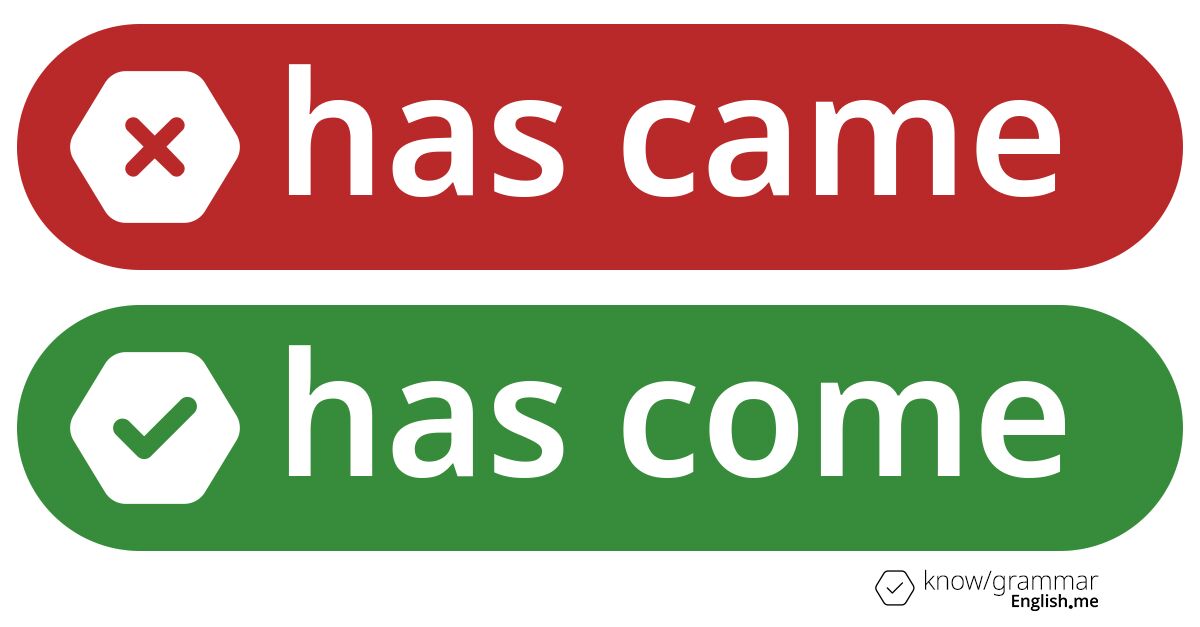Why "has came" is incorrect: understanding proper verb tense usage
Reviewed and edited by  Anwar Kareem 29/09/2024, 11:36
Anwar Kareem 29/09/2024, 11:36
English.me team member
 What kind of error is it?
What kind of error is it?

This is a grammatical error related to verb tense usage, specifically an incorrect form of the past participle in the present perfect tense.
 Why do people make this mistake?
Why do people make this mistake?
People might make this error due to confusion between the simple past tense "came" and the past participle "come". Non-native speakers might also apply regular verb conjugation patterns to irregular verbs out of habit.
 What is correct?
What is correct?
The correct form in the present perfect tense is "has come", using the past participle "come" of the irregular verb "come".
 Examples of correct usage
Examples of correct usage
- She has come to the party.
- The software update has come at the right time.
- He has come a long way since we last met.

 English
English español
español française
française italiano
italiano deutsche
deutsche 日本語
日本語 polski
polski česky
česky svenska
svenska Türkçe
Türkçe Nederlands
Nederlands